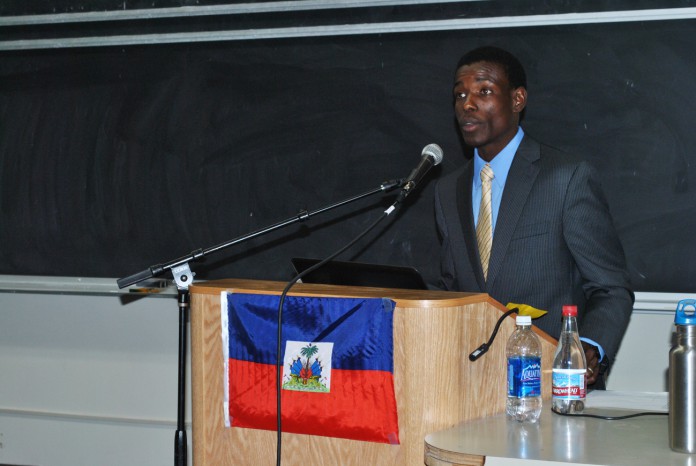Aisa Villanueva
Writer
This year’s Human Rights Week at UCSB was held November 15-19. The event was hosted by the Human Rights Committee together with partner student organizations on campus, such as UCSB’s Global Medical Brigades and the UC Haiti Initiative.
A theme was assigned for each of the days during Human Rights Week, with activities and events focused on promoting their respective theme.
Thursday’s Human Rights theme focused on “Health and Humanity” and the importance of providing improved living standards and health care to impoverished countries.
One event supporting this theme was the discussion on “Global Medical Perspectives.”
Volunteer doctors with UCSB’s Global Medical Brigades (GMB) gave presentations on their experiences providing health care to under-served communities on the global scale. The discussion was organized by GMB, a secular student-led volunteer organization whose main mission is to provide health care to communities in various regions of Panama, Honduras, and, most recently, Ghana.
Two of the group’s doctors, Dr. Mark Rosen and Dr. Neil Sullivan, were the speakers for the event.
“Buy into the fact that basic health care is a necessity, a right,” said Rosen.
An internal medicine doctor at UCI Hospital, Rosen started off by sharing his medical experiences in Cold War Soviet Union.
While doing volunteer medical work there, Rosen shared his experience witnessing an otherwise healthy-looking boy apprehensively walk while wobbling on his side. His initial suspicion was that the boy suffered from rickets, a disorder caused by vitamin D deficiency. After receiving confirmation from an orthopedist, Rosen gave the young boy supplements to counter the disorder’s effects.
The next summer, Rosen went back and saw the same boy. This time, the boy had on a confident smile as he was running after his friends without any of the shaking he previously had suffered from.
“You can’t just sit here and do nothing. If you can be afforded a quality college education, let this be the start to where you are encouraged to give back to the community – be it locally or internationally,” said Rosen.
Sullivan also revolved his presentation on his work providing free medical service to necessitous communities in the rural villages of Columbia and his assistance to medical brigades in Panama.
“Again, you don’t have to go out of the country to serve austere, poor communities. Be open to the fact that they are everywhere and they need your help,” he said.
The UCSB Chapter of the Haiti Initiative – a UC system-wide organization aiming to raise awareness and support for the sustainable and long-term reconstruction in Haiti- held a discussion panel that tackled issues that continue plaguing Haiti.
The “Health in Haiti” event showcased four speakers, including award-winning Haitian journalist Wadner Pierre and Direct Relief International’s (DRI) Emergency Response Director Brett Williams as well as Kelsey Maloney, a Global Studies undergraduate who interned with Un Techo Para Mi Pais and Thomas Oliver of Intelligent Mobility.
Oliver started off the discussion with an introduction to problems faced by physically challenged individuals in rural areas. Intelligent Mobility is a social enterprise that seeks to empower individuals with disabilities by designing and producing safe, durable wheelchairs and mobility devices that are suitable for the terrain in developing countries.
Their group has now designed a Haiti-customized wheelchair that is safe, long-lasting, affordable, and easily expandable to fit either a slender young woman or a tall, burly man.
Intelligent Mobility, together with Direct Relief International, will soon be bringing these wheelchairs to the Haitian public. To ensure sustainability, they plan to develop local expertise in Haiti who will be trained to assemble, maintain, and use the chairs. These locals will, in turn, teach those who will be using the wheelchairs.
Maloney, on the other hand, imparted lessons stemming from her volunteer experience in Haiti with Un Techo Para Mi Pais, a Latin American NGO focused on mobilizing youth to eradicate extreme poverty by building homes and supporting social development programs.
“As UCSB students, we have all these resources and knowledge,” said Maloney.
“When I was in Haiti, I met a lot of their youth who want to come here and study. Let’s not take for granted what we have, and give back to those who don’t have the same opportunities. Take time to find ways you can be involved.”












Comments are closed.